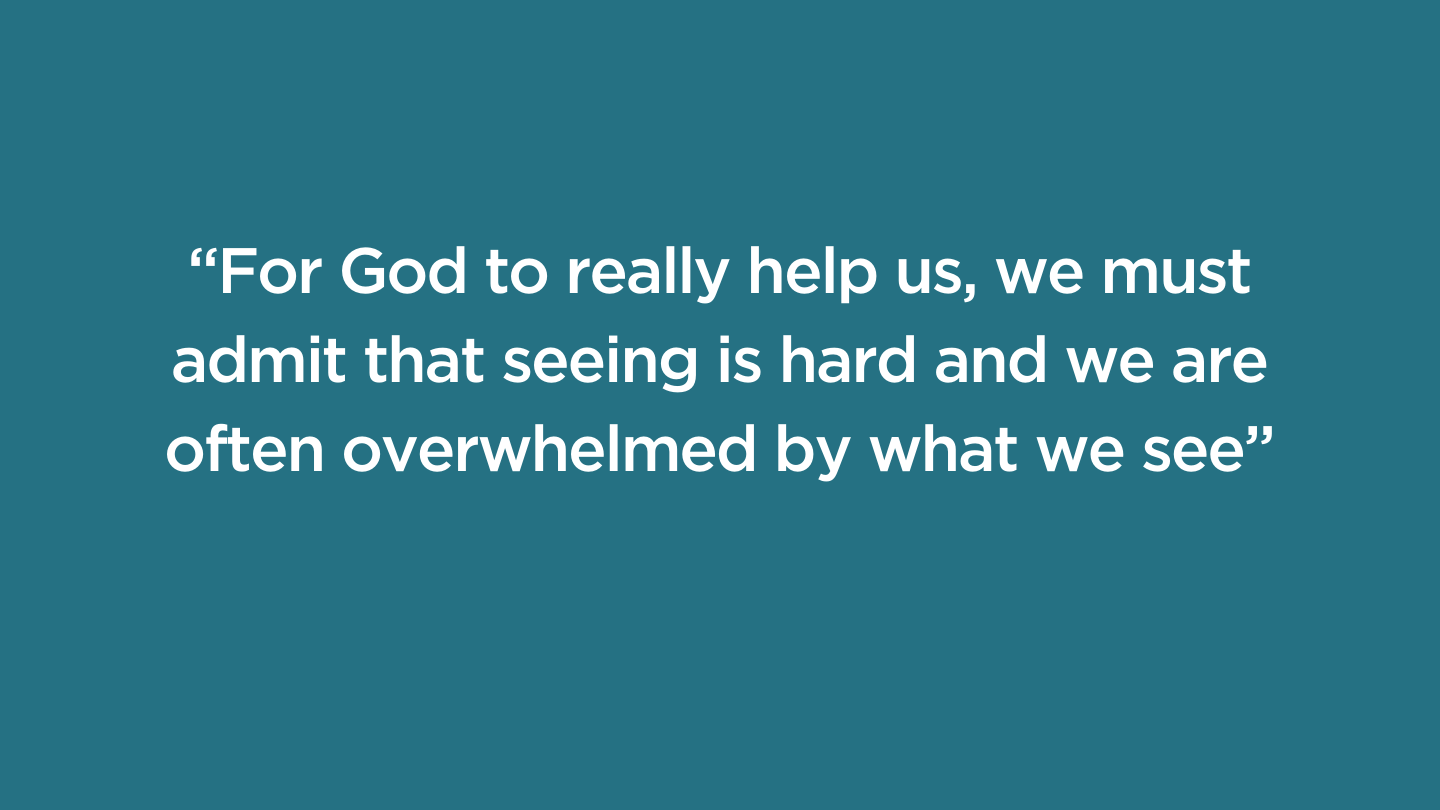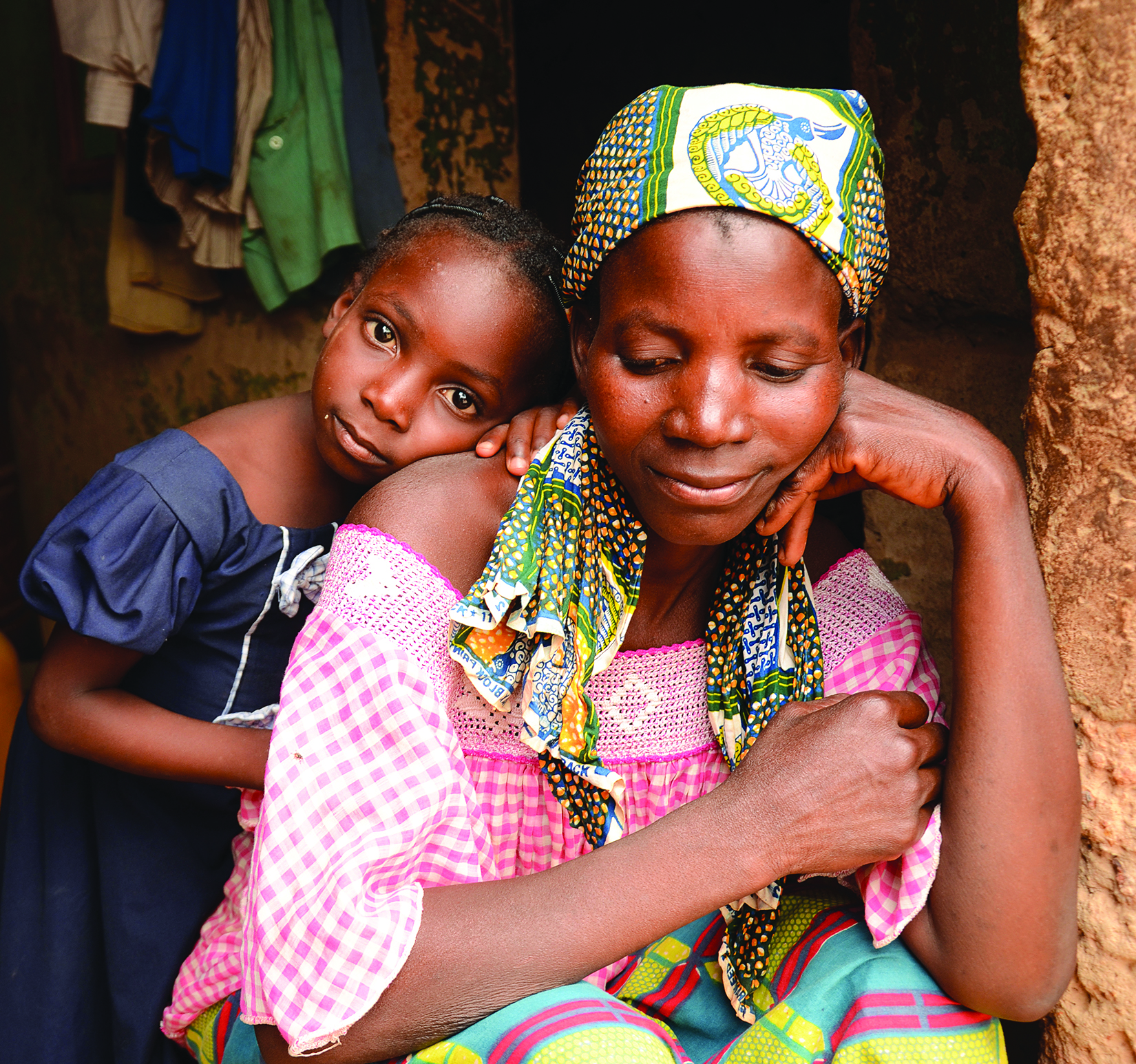Eyes to SeeSample



Have you ever wished you could have the superpower of invisibility? Sure, there are times when we would all love to move through the world without being noticed, but not all the time. And yet, that is the daily reality for many people: they become part of the blur as we rush by. It’s impossible for us to pay attention to everyone around us.
At first, it can seem like people living in poverty or suffering injustice are somehow different from us. It’s hard to relate to experiences so different from our own. But the remarkable thing is that when we look closely, we see our commonality. We all have hopes. We all want the best for our families. We all laugh at funny things. We all cry when we are hurt.
So, what might we not be seeing in the world around us?
Some people only become ‘visible’ to us when they become part of a sad statistic —refugees arriving on our shores, the hungry facing a global food crisis, homeless without hope of affordable housing, or First Nations communities without water.
For God to really help us, we must admit that seeing is hard, and we are often overwhelmed by what we see. It’s tempting to retreat into an Instagram-perfect world and keep our own families safe and happy. Other times, we are jarred awake by an image so heart-wrenching we cannot turn away.
When the body of three-year-old Alan Kurdi washed up on the shores of Turkey during the Syrian refugee crisis, people suddenly began to see something they hadn’t before: people fleeing their homes are just like them.
As Somali-British poet Warsan Shire wrote:
“You have to understand,
no one puts their children in a boat
unless the water is safer than the land.”
But there is another thing we sometimes fail to see: Hope. God has not abandoned us in a world full of troubles. No one is invisible to God. He sees even those considered the most inconsequential to society. Genesis 16 tells us of Hagar, a rejected servant who was mistreated and fled into the desert. You couldn’t get much lower on the social spectrum than Hagar. But she wasn’t beneath God’s notice. God knew of her misery and sent the angel of the Lord to help her. And Hagar “gave this name to the Lord who spoke to her: ‘You are the God who sees me’” (Genesis 16:13). We serve a God who sees us. A God who sees all who are suffering in poverty and injustice. A God who longs to heal this broken world.
We can hope in Christ, who tells us, “In this world, you will have trouble. But take heart! I have overcome the world” (John 16:33). As we embark on this journey, we ask God to help us have His eyes in this world that is thick with paradox: full of incredible beauty and love, and, at the same time, full of brokenness, pain, and poverty.

Reflect:
- Are you looking at the reality around you, or are some people invisible? What is the hope that enables you to look at reality?
Pray:
God, it’s not a stretch to say that we can only bear so much reality. Thank You for reminding us that You can handle all reality, and that is exactly what You did in dying for all of us on the cross. Over the next six weeks, would You help me begin to see what You see? Would You help me to see through a lens of hope that You are already working in the darkest corners of the world? Thank You for seeing me where I am right now. Amen.
Scripture
About this Plan

Jesus had compassion, especially for those facing poverty, injustice, and inequality. What is our response? Do you see the world the way God does? If you want to go deeper and understand the spiritual root of poverty, join us for this 42-day video-assisted bible study from Compassion Canada. Ideal for group study or a challenging personal journey. Abridged and Updated.
More
We would like to thank Compassion Canada for providing this plan. For more information, please visit: http://cmpsn.ca/YV
Related Plans

Our Hope

Intimacy With God

Let's Talk About...the Content We Create

One a Day

Mastering Our Emotions: Biblical Principles for Emotional Health

Freedom From Bitterness

What Does It Mean to Follow Jesus?

The Church - Ephesians 4

PASKONG KAY SAYA! What Makes Christmas Really Merry
